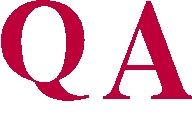INFORMATION ABOUT
PATENTS
![]()
Last Updated April 01, 2003
Intellectual property law is the law of copyrights, trademarks and patents. Some persons occasionally confuse the three, and although there may be some resemblance in the rights of these three kinds of intellectual property, they are different and serve different purposes. For more detailed information about copyrights and trademarks, please see those articles on our Legal Article Wall.
We hope that the questions and answers presented here will assist you in familiarizing yourself with issues and terms of copyright law. Because all legal problems are unique, nothing provided here is a substitute for the advice of competent counsel. We strongly urge you to consult with an attorney licensed to practice in your state about any particular legal problem you may have.

WHAT IS A PATENT?
![]() A
patent is a grant of protection for an invention. Owning a patent gives you the
right to stop someone else from making, using or selling your invention without
your permission.
A
patent is a grant of protection for an invention. Owning a patent gives you the
right to stop someone else from making, using or selling your invention without
your permission.
Protecting your ideas may have gotten a bit easier. There is an Internet site, Firstuse.com, that instantly time-stamps songs, scripts, business plans, MIDI files, and Internet-site contents to protect them against infringement. While this is not a substitute for copyrights, patents or trademarks, it claims to provide a good first step in protecting your intellectual property.
ARE THERE DIFFERENT KINDS OF PATENTS?
![]() Yes.
The two types of patents that entrepreneurs most often use are "design
patents" and "utility patents". A patent can be filed as a
design patent, a utility patent, or both.
Yes.
The two types of patents that entrepreneurs most often use are "design
patents" and "utility patents". A patent can be filed as a
design patent, a utility patent, or both.
A design patent provides protection on the appearance or ornamental design of your invention. It is usually cheaper and simpler to file, and more easily accepted by the Patent and Trademark Office. Its term is 14 years.
A utility patent, however, is more effective, and protects the function or method of your invention. It is more complicated to file because you have to explain how your invention is used. Its term is 20 years.
HOW DO I KNOW IF MY INVENTION IS PATENTABLE?
![]() A design
patent must pass two tests:
A design
patent must pass two tests:
1. It must have a new, original and ornamental design; and
2. The novel features of the design must not be obvious.
A utility patent must pass four
tests:
1. Statutory-Class test: the invention can easily be classified as a process,
machine, manufacture, composition or a "new use" of any one or more
of these classifications;
2. Utility test: the invention is considered useful;
3. Novelty test: the invention has a feature that sets it apart from previous
inventions and is unknown to the public; and
4. Unobviousness test: the invention's novelty must not be obvious to someone
who has ordinary skill in the area of the invention.
CAN I FIND OUT IF MY IDEA HAS ALREADY BEEN PATENTED?
![]() Yes.
A search can be performed on all existing patents. You can perform a search on
your own, use the Internet or hire a patent researcher.
Yes.
A search can be performed on all existing patents. You can perform a search on
your own, use the Internet or hire a patent researcher.
To perform a search on your own, go to a public library that has been designated as a Patent and Trademark Depository Library. The librarians there can assist you.
With Internet access, you can use two Web sites to perform a search. The first site is Patent and Trademark Office. This site is sponsored by the Patent and Trademark Office and allows you to search existing patents. The second site is >Patent Information sponsored by IBM, which is maintained by IBM and is more comprehensive.
Patent researchers can be expensive, and you can find them in the Washington, D.C. yellow pages under "Patent Searchers".
WHERE DO I FILE MY PATENT APPLICATION?
![]() File
your patent with the Assistant Commissioner for Patents, Washington, D.C.
20231.
File
your patent with the Assistant Commissioner for Patents, Washington, D.C.
20231.
WHO CAN FILE A PATENT, AND DO I NEED AN ATTORNEY?
![]() Only
an inventor may apply for a patent on his or her idea. If two or more people
participate in the creation of an invention, the law requires that all
participants apply for the patent as joint inventors. Inventors may prepare
their own applications, but unless they are familiar with these matters, they
may get into considerable difficulty, and would benefit from employing the
services of a registered patent attorney.
Only
an inventor may apply for a patent on his or her idea. If two or more people
participate in the creation of an invention, the law requires that all
participants apply for the patent as joint inventors. Inventors may prepare
their own applications, but unless they are familiar with these matters, they
may get into considerable difficulty, and would benefit from employing the
services of a registered patent attorney.
DESSEN, MOSES & SHEINOFF is happy to assist you in any matter that arises in either Pennsylvania or New Jersey, the two states in which our attorneys routinely practice. If you have other questions or comments about the area of Patents or any other area in which we practice, please send us an E-mail message with your questions or comments and we will be happy to try to assist you.
![]()
LINKS TO OTHER INTERESTING INFO
Firstuse.com
Patent and Trademark Office
Patent Information sponsored
by IBM
![]()
Top of Page | DM&S Home Page
| Legal Article Wall
About DM&S | To Retain
DM&S | Ask Us A Question
![]()
Copyright © 1996 - 2003 Dessen, Moses & Sheinoff
All rights reserved.



